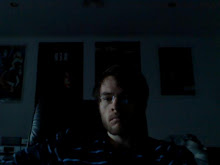fully undeturned
I don’t usually post up poems I’m happy with and this is no different. The occasion seemed good though because I have a companion-piece in the form of some notes on Milton transcribed from a Paperblanks. The two bomblets might just make a blam.
Theatre
i. m. John Milton
The magictrick we call the ‘full vole’, it enlists
the gluteal through the heart muscles to fold
disappearance and appearance tall in twists,
so you applaud yourself for managing to hold
in you the knowledge of what’s there; feel ashamed
for making it appear, and knowledge and magician disappear:
A magictrick they call the ‘full vole’, it persists
well into the year, or while a batch of cysts
millimetres each and Sundays old
sullies results the radiologist had sold:
‘Bad news and good.’ Persists, half in thanking named:
I for no difficult trick was taken volunteer.
I don’t usually post up poems I’m happy with and this is no different. The occasion seemed good though because I have a companion-piece in the form of some notes on Milton transcribed from a Paperblanks. The two bomblets might just make a blam.
Theatre
i. m. John Milton
The magictrick we call the ‘full vole’, it enlists
the gluteal through the heart muscles to fold
disappearance and appearance tall in twists,
so you applaud yourself for managing to hold
in you the knowledge of what’s there; feel ashamed
for making it appear, and knowledge and magician disappear:
A magictrick they call the ‘full vole’, it persists
well into the year, or while a batch of cysts
millimetres each and Sundays old
sullies results the radiologist had sold:
‘Bad news and good.’ Persists, half in thanking named:
I for no difficult trick was taken volunteer.
(Not happy: I cannot get the ending right.)
Notation
You make a theodicy for comfort, on the assumption of discomfort. Theodicies by definition recognise that theodicies are impossible, and evil is unjustifiable.
Milton’s argument for God’s existence (in DDC) was that without him the world would be evil, therefore God exists! It’s only good if it was created with knowledge that all the evil that proves the creator’s existence would occur!
I want to say: ‘the problem of evil’ so theodicies take evil to disturb our faith. But we believe because of evil—to give it fatherly, orderly sanction, to bring it to the realms of law and logic, to reduce the cost of sadness; say of beareavement. The motion of belief is theodical, but theodicies are always theisms in disguise. (And always incomplete?) And the motion is finally circular: [are we looking for religion to assuage us or merely to justify itself, to reassert its self-consistency or to comfort? are they the same?] should a theodicy complete itself in a mind and justify evil as well as theism, and should evil then happen as it must, the justification is revealed as incomplete and must be rebuilt in a process that as much forgets evil as justifies it. [This is what Danielson would call ‘faculty psychology’. Not that we should trust Danielson.] (We may end up thanking the good God acquitted of evil for the fact the evil was not worse.) We need the process of theodicy because the perfect theodicy is impossible: theodicies only exist because they cannot exist. The irony of a making good of evil the determinant of whose manufacture (and relevance) is evil reflects that of a God created in part to explain and lenify evil, the terms of whose ‘presence’ inaugurate a need to justify evil, to explain and to lenify—as it were, stimulates theodical demand. Religion in the present in the world is never dogma (unless co-opted as the philosophy of an authority) but constitutes a dialectic between world and mind, chaos and reason, whereby faith waxes as the world is most conformable to mind, easiest for intuition to make sense of, and wanes when randomness irrupts, whence the mind retreats to itself to rerationalise and wait for emotions to pass and for things to mean-revert. Imagination watches itself vindicated and faith is sprucer for having survived, till the next test.
The trick, then, is the magic.
But I can’t say.




No comments:
Post a Comment